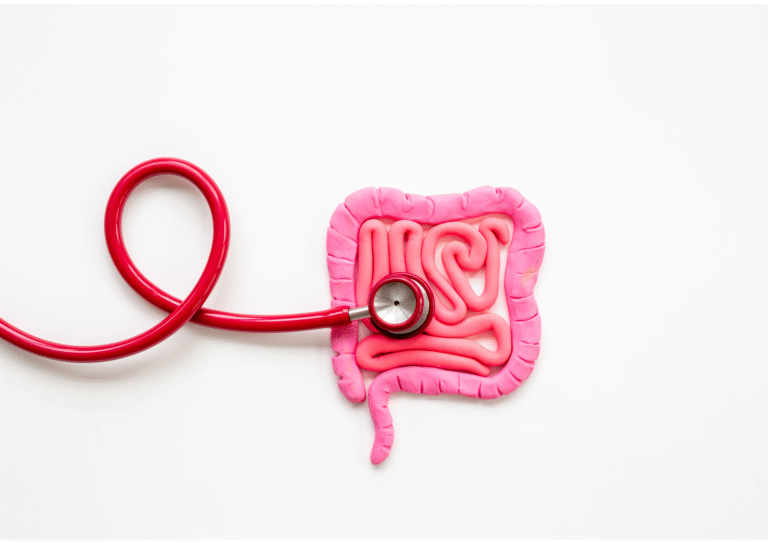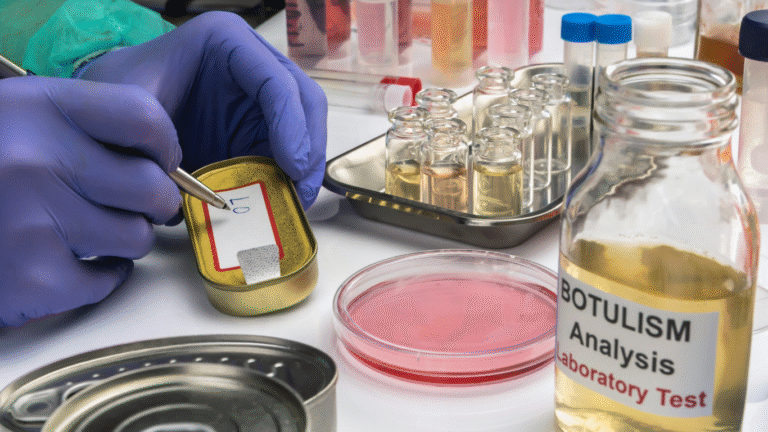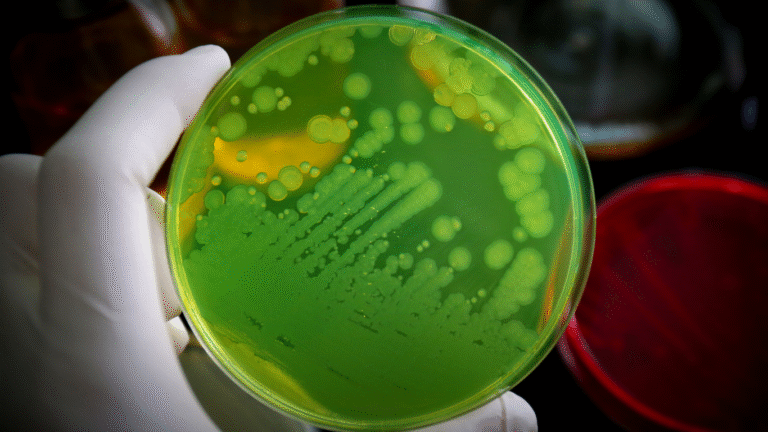Discover what really supports gut health, and which trendy influencers exaggerate or endanger your well‑being, from probiotics to detoxes.

Are You Tired of Bloating, Low Energy, or Mood Swings?
What if you’re tired of constant bloating, mysterious low energy, or unpredictable mood swings? You wish someone would just give you clear guidance on gut health, without all the confusing trends. If you keep reading, you’ll get straightforward guidance on what truly helps, what actually harms, and what to confidently trust when it comes to your gut.
Why understanding Gut Health 101: What’s Real and What’s Influencer Hype? matters more than you might think. Because your gut affects everything: your digestion, immunity, brain function, and even your daily comfort. Sorting fact from the endless influencer hype can protect your health, your sanity, and your wallet.
However, many influencers on social media promise simple fixes. They push probiotic pills, trendy detox drinks, and various “miracle” supplements with glossy captions and dramatic before/after photos. On the other hand, leading experts frequently warn that these very trends often lack scientific backing. Worse, they can cause significant harm when misused or overused, sometimes delaying proper medical care. As a result, critical thinking is your best defense.
1. Probiotic Supplements: Not Always Safe
Influencers often present probiotic supplements as universal, one-size-fits-all gut saviors. They claim that everyone needs them, and that “more is better.”
But Here’s What Experts Say: The evidence supporting generic, broad-spectrum probiotic supplements for healthy individuals is surprisingly weak or mixed. [1] In many cases, these supplements may offer little benefit for those without specific medical conditions.
Furthermore, overuse or misuse can actually reduce the natural diversity of your gut microbiome. This can even cause infections in vulnerable people or upset your existing, delicate gut balance. [2] Unfortunately, unscrupulous marketing often includes misleading claims and products that are under-dosed or don’t contain the live cultures advertised.
“In healthy people, probiotic supplements offer little benefit . . . and can cause harm.” — The Washington Post [3]
As a result, probiotics are not harmless candy. They can cause uncomfortable side effects like diarrhea, bloating, and gas. For some individuals, particularly those with compromised immune systems, they can even lead to serious infections. [4]
2. Kombucha and Fermented Drinks: Not a Free Pass
Kombucha, kefir, and other trendy fermented drinks receive immense influencer love, often portrayed as universally beneficial elixirs. While traditional fermented foods can be great, these commercial drinks can sometimes be problematic.
For instance, excessive kombucha consumption can inadvertently raise your blood sugar due to added sugars. It can also lead to an unexpected intake of alcohol, as kombucha is a fermented product. [5] Similarly, while kefir is generally healthy, its probiotics can sometimes trigger allergic or digestive reactions in sensitive individuals. It may also not be suitable for people who are immunocompromised due to the presence of live bacteria. [6]
“Fermented” does not always mean safe or healthy, either. Some commercial drinks are surprisingly high in sugar, while unpasteurized versions can carry risks of harmful bacterial contamination. As a result, always check labels for sugar content and ensure proper handling.
3. Detox Drinks & Gut Cleanses: Risky Fads
You’ve likely seen inflammatory TikTok videos pushing “detox” teas, extreme colon cleanses, and dubious fiber drinks. These fads promise a quick reset for your gut.
But Here’s What Experts Say: Medical professionals and scientific bodies, like the National Center for Complementary and Integrative Health (NCCIH), unequivocally state that detox cleanses are largely unnecessary and often harmful. Your body’s own liver and kidneys are incredibly efficient at detoxifying. [7, 8]
Furthermore, relying on harsh laxatives, such as excessive doses of castor oil or other “cleansing” agents, can lead to serious health issues. These include severe dehydration, electrolyte imbalance, and even dependency. [9] Experts also point out that the overuse of these cleansers can severely disrupt your natural gut flora. This can lead to a host of uncomfortable and potentially serious side effects, paradoxically worsening gut health in the long run. [10, 11]
4. Prebiotic Sodas and Fiber Marketing Gone Wrong
Some influencers promote “prebiotic sodas” and isolated fiber supplements as easy, magical gut boosters. They offer a quick, fizzy fix without the effort of whole foods.
But Here’s What Experts Say: Many of these so-called “prebiotic sodas” combine fermentable fibers with carbonation. While the fibers are technically prebiotic, the combination can lead to significant bloating, uncomfortable cramps, and excessive gas for many people. [9] It’s a quick way to distress your gut, not support it.
Moreover, advice from underqualified influencers may promote excessive fiber intake, often in concentrated, unnatural forms. This can lead to severe digestive distress, including blockages or nutrient absorption issues, if not introduced gradually and appropriately. [12] On the other hand, real, beneficial prebiotic sources are whole foods like oats, garlic, onions, and bananas. These are safer, far cheaper, and their benefits are strongly backed by robust scientific evidence.
5. Misguided Fast & Clean-Gut Hacks
Some influencers tout time-restricted eating or extreme “clean gut” routines, promising rapid weight loss and digestive “resets.”
But Here’s What Experts Say: As Dr. Will Bulsiewicz, a board-certified gastroenterologist and gut health expert, points out, strict protocols like prolonged 36-hour fasts are often excessive for most people. They can inadvertently trigger bloating, nutrient deficiencies, and disrupt healthy eating patterns rather than improving them. [9] Similarly, social media’s “eat-it-til-you’re-clean” routines often ignore individual health needs, metabolic conditions, and potential risks.
However, moderate fasting, such as avoiding late-night eating or simply extending your overnight fast, does have proven benefits for gut rest and metabolic health. The key difference lies in moderation and individual suitability. You certainly don’t need extreme routines or expensive products to achieve these benefits.
Unnoticed dark humor moment: I once downed three kombucha cans to “supercharge recovery” before a morning workout . , . and nearly made friends with the bathroom instead of the treadmill. Not my proudest moment of gut “optimization.”
Why This Emphasis Matters
Influencers often hype quick-fix gut products for views or profit. Without critical thinking, folks risk:
- Wasting Money: On ineffective or unnecessary products.
- Masking Deeper Issues: Delaying diagnosis and treatment for real medical conditions.
- Causing Digestive Distress: Creating new problems with aggressive or inappropriate “hacks.”
- Delaying Proper Medical Care: Leading to worsening health conditions that could have been addressed sooner. [10, 11]
This explainer on Gut Health 101: What’s Real and What’s Influencer Hype? shows why grounding your decisions in science protects your health, your wallet, and truly supports real, lasting progress.
Safe, Science-Backed Gut Tips
Ready for real solutions? Here are practical, evidence-based steps:
- Eat Fermented Foods Daily: Focus on traditional sources like plain yogurt with live cultures, kimchi, sauerkraut, or miso. Avoid sugary, highly processed versions.
- Choose Prebiotic-Rich Whole Foods: Prioritize oats, garlic, onions, bananas, apples, and a variety of legumes. Get your fiber from diverse, natural sources, not fizzy drinks.
- Be Smart with Probiotics: Skip generic supplements unless a healthcare professional advises them for a specific issue and a proven strain.
- Moderate Fasting Only: If you consider fasting, opt for gentle, sustainable approaches like avoiding late-night meals. Avoid extreme fasts or “cleanses.”
- Track Symptoms and Consult a Specialist: Listen to your body. If you experience persistent bloating, pain, or significant mood changes, consult a gastroenterologist or a registered dietitian.
Conclusion & Your Next Steps
Gut health trends offer the promise of quick fixes, but hype can easily mislead or even harm you. For true, lasting well-being, shift your focus from trendy fads to safe, proven strategies. Stay skeptical of instant claims and products that sound too good to be true.
Your Next Step: Pick just one safe strategy, like consistently adding a small serving of plain yogurt or a handful of oats to your daily routine. Track how your digestion and mood respond over a fortnight. Build on what genuinely works for your body, and confidently skip the fads. Because truly healthy guts aren’t built on hype . , . they’re built on simple science, consistency, and a mindful approach to listening to what works best for you.
Sources
- Consumer Reports. “Do Probiotic Supplements Really Work?” (Explores the mixed evidence for generic probiotics). Published May 22, 2024. https://www.consumerreports.org/health/food-supplements/do-probiotic-supplements-really-work-a9689405625/
- Cell. “Risks and Benefits of Probiotics: An Overview.” (Review article discussing potential downsides). Published September 5, 2018. https://www.cell.com/cell/fulltext/S0092-8674(18)31023-3
- The Washington Post. “Probiotics: What they are, what they do and when you should take them.” Published October 17, 2023. https://www.washingtonpost.com/wellness/2023/10/17/probiotics-best-food-supplements/
- Mayo Clinic. “Probiotics: Are they safe for you?” Published January 16, 2024. https://www.mayoclinic.org/diseases-conditions/digestive-system/in-depth/probiotics/art-20046489
- Cleveland Clinic. “Is Kombucha Good For You?” Published November 16, 2022. https://health.clevelandclinic.org/kombucha-benefits
- Healthline. “Kefir: Benefits, Side Effects, and How to Make It.” Updated June 27, 2023. https://www.healthline.com/nutrition/kefir-benefits
- National Center for Complementary and Integrative Health (NCCIH). “Detoxes and Cleanses: What You Need To Know.” Published August 2019. https://www.nccih.nih.gov/health/detoxes-and-cleanses-what-you-need-to-know
- Mayo Clinic. “Do detox diets work?” Published May 27, 2022. https://www.mayoclinic.org/healthy-lifestyle/consumer-health/expert-answers/detox-diets/faq-20058040
- Dr. Will Bulsiewicz. (General advice from his public statements and books, e.g., “Fiber Fueled”). For specific insights: Bulsiewicz, W. (2020). Fiber Fueled: The Plant-Based Gut Health Program for Losing Weight, Restoring Your Health, and Optimizing Your Microbiome. Avery.
- American College of Gastroenterology (ACG). (General consensus on gut health and avoiding unproven treatments). For a broader perspective: Pimentel, M., et al. (2020). “ACG Clinical Guideline: Small Intestinal Bacterial Overgrowth.” American Journal of Gastroenterology, 115(2), 165-178.
- Harvard Medical School. “Understanding the dangers of internet medical misinformation.” Harvard Health Publishing, June 2, 2023. https://www.health.harvard.edu/blog/understanding-the-dangers-of-internet-medical-misinformation-202306022938
- Academy of Nutrition and Dietetics. “Position of the Academy of Nutrition and Dietetics: Health Implications of Dietary Fiber.” Journal of the Academy of Nutrition and Dietetics, 115(11), 1870-1875.




